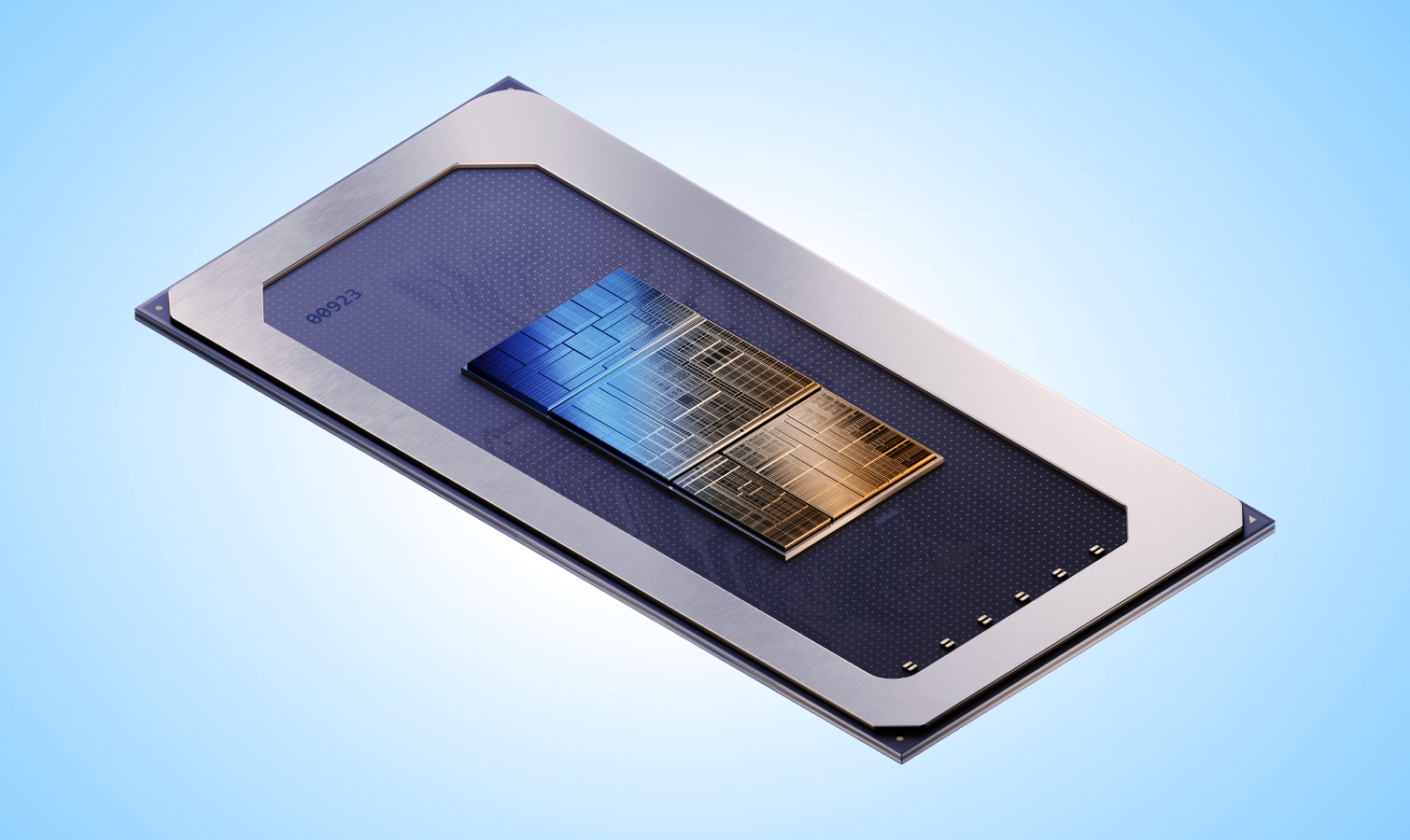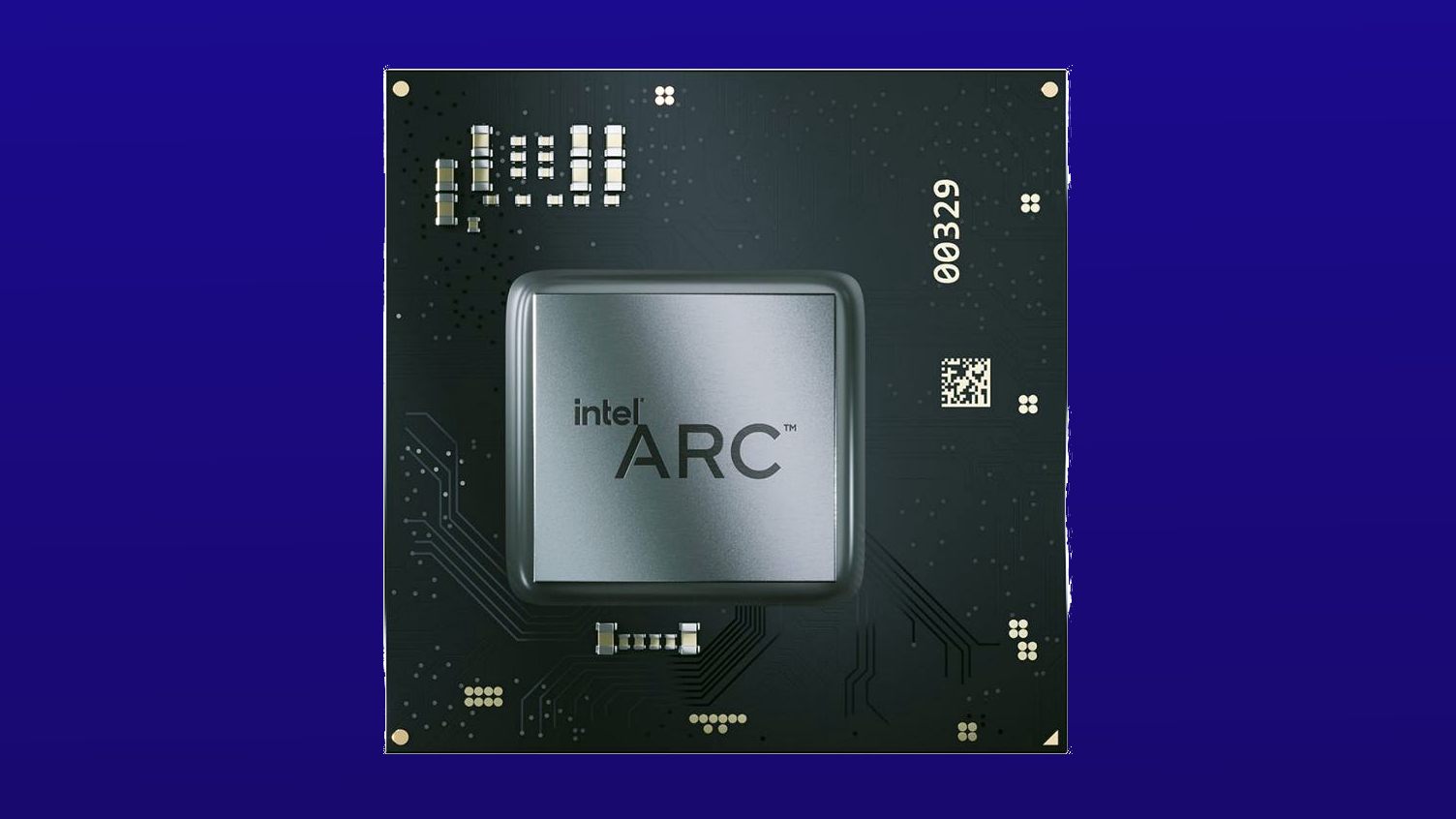
Intel is unveiling its new 14th Gen Meteor Lake CPUs to the world at Computex in Taiwan this week, and as you might expect, generative AI like ChatGPT is the buzzword everyone's talking about.
These new 4-nanometer Meteor Lake chips are smaller and more capable than predecessors like the 7-nanometer Raptor Lake 13th Gen CPUs Intel launched late in 2022. They also have a new component, called a VPU, which Intel claims helps Meteor Lake chips excel at AI workloads.
Intel is betting this all-new CPU/VPU/GPU design will help its 14th Gen Meteor Lake CPUs stand out from the pack by delivering top-tier performance and power efficiency in some of the best laptops on the market. More importantly, it's taking a big swing at relevancy by hyping up Meteor Lake's capacity to chew through AI workloads by offloading them to the VPU, freeing up the rest of the chip for improved performance.
It's an ambitious, complicated pitch, one we won't be able to verify until we test a Meteor Lake PC for ourselves. But until that day arrives, here's what we know so far about Intel's new 14th Gen Meteor Lake CPUs, how they work and what they portend for the future of computing.
Intel Meteor Lake: Price & release date speculation
Intel has thus far been pretty cagey about how or when it plans to start rolling out its new 14th Gen Meteor Lake chips. So far, the only firm commitment we've heard from Intel is that Meteor Lake CPUs will start shipping later in 2023.
We can try to narrow that down a bit with some guesswork. Intel released its preceding 13th Gen Raptor Lake in late October of 2022, starting with high-end desktop CPUs and following that up with laptop chips. A year prior, it launched its 12th Gen Alder Lake CPUS in late October as well.
So while we have no official word from Intel yet, it seems likely the company will stick to its habit of releasing new CPUs in the last quarter of the year, likely in late October. And with pricing for Intel's inaugural batch of new CPUs typically stretching between $300-$600 (for the entry-level and top-tier CPUs, respectively), it's likely these newer, smaller Meteor Lake chips won't be cheap.
Intel Meteor Lake: Performance and specs
So far we have very few details about what the specs of Intel's new Meteor Lake chips will look like. We'll likely get more closer to release, which we again expect near the end of 2023.
What we do know is that Meteor Lake is Intel's first CPU built on a 4-nanometer process. That means it should be more performant and power-efficient than predecessors like Raptor Lake, which were built on a 7-nanometer process.
It may even mean Intel's new Meteor Lake CPUs deliver better performance than the incredible Apple M2 chip, which is built on a 5-nanometer process. We'll just have to wait until we get some Meteor Lake laptops in for testing to find out!
Intel Meteor Lake: New features
New VPU for AI workloads
Everyone's talking about AI these days, and Intel is hopping on the bandwagon with Meteor Lake and its new VPU. In a press presentation attended by Tom's Guide, Intel representatives claimed that the amount of compute power required to do things like dynamic noise suppression in video calls has increased significantly in recent years.
Intel claims PC users should expect more and more AI workloads to be done locally on your PC, rather than online by remote servers. This makes sense when you consider that in addition to the current CPU demands of machine learning tricks like blurring your background on video calls, Microsoft's new Windows Copilot adds a ChatGPT-like assistant to Windows 11, and Intel is betting we'll see lots more similar apps showing up on our PCs in the years ahead.
This is where the VPU comes in. New to Meteor Lake CPUs, Intel's VPU sits alongside the CPU and GPU on the Meteor Lake SoC (System on Chip) and specializes in handling sustained AI workloads at low power. As you might expect, Intel pitches this as a unique strength that makes Meteor Lake chips more effective and efficient at doing things like dynamic noise suppression on calls because the VPU can handle these tasks more efficiently than the CPU while freeing up the CPU to do other work.
In a slide during the press presentation Intel claimed its new VPU tech allows Meteor Lake chips to do more with less power draw. In Windows Studio Effects, for example, the addition of a VPU allows for advanced tricks like gesture recognition and improved fidelity in dynamic blur effects.
Intel has also been working to push the tech forward in apps like Audacity, Gimp, OBS and Unreal Engine. In the latest version of Unreal Engine, for example, Intel claimed that Meteor Lake chips can improve real-time motion capture performance by offloading the AI workload to the VPU and letting the chip's onboard GPU focus on the rendering workload.
Switching to Arc integrated graphics chipsets
Say goodbye to the Iris Xe GPUs that were integrated into earlier editions of Intel's processors. With Meteor Lake Intel is switching things up and equipping its chips with a new Arc integrated graphics chipset.

Yes, that's Arc as in the new Intel Arc discrete graphics cards that hit the market in 2022. Now that Intel is making its own graphics cards again, it's putting some of that tech into its CPUs, and the result is that Meteor Lake chips will have onboard low-power Arc graphics chiplets with support for DX12 Ultimate, raytracing, supersampling and more.
While switching to Arc for onboard graphics likely won't mean Meteor Lake owners can enjoy top-tier gaming performance without a discrete GPU, it may lead to widespread improvement in performance and power efficiency when playing games on the best Windows laptops.
Intel Meteor Lake: Outlook
Intel's new Meteor Lake CPUs look to not only deliver the usual improvements in speed and power efficiency we expect from new chips, but a seismic shift in the way we think about chip design.
That's because Intel is betting its next family of chips on the promise that our current AI craze will be more than a flash in the pan. The company is stepping away from its usual focus on price, performance and power efficiency to promote Meteor Lake as CPUs designed for the AI-centric future of computing.
It's an exciting pitch, albeit one predicated on a lot of buy-in and support from clients and partners designing their apps to take advantage of Meteor Lake's new VPU. We'll have to wait and see whether or not this AI-focused approach to chip design has any meaningful impact on key performance indicators like laptop battery life, gaming performance and the like.
Sadly, it should be a while yet before we get a chance to test any Meteor Lake PCs for ourselves. Stay tuned!







